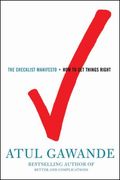Email Overload. Really?
No news flash here ... except that many of us share the frustration over the relentless flood of email that washes ashore 24/7. There is a nugget somewhere in various…
No news flash here ... except that many of us share the frustration over the relentless flood of email that washes ashore 24/7. There is a nugget somewhere in various…
I must admit that's a new phrase to me ... but it's a kissing cousin to "Death by PowerPoint", it seems. You'll enjoy the recent NY Times article about the…

A recent interview with Fuse founder, Bill Carter, reminds me of two critical variables that are easily lost in our haste to always move to the next issue. First, above all, having the best people is the only antidote to business mediocrity. I’ve said it time and again, and virtually everyone knows this deep down (but very few put it into practice) … that the organization that excels identifies the best people, makes certain they are properly rewarded, and never stops looking for top talent. (more…)

In our discussion of this subject, we’ve ranged from the baseline of personal accountability to a broader organizational culture, to the battle-tested power of after action reviews.
So, if the power of an accountable organization is so obvious, why aren’t we all doing it?
In “The Oz Principle,” a book by Craig Hickman (recently reissued in a revised and updated edition 10 years after its original publication), the overgrown roots of a victimization mentality is chronicled as one of the most corrosive forces in American business.
[pullquote]The man who complains about the way the ball bounces is likely to be the one who dropped it.~ Lou Holtz[/pullquote]
Mr. Hickman pulls no punches in deriding the plight of victimization that he believes has a stranglehold on American industry.
How many of these lines have you heard during your business career?
* “That’s the way we’ve always done it.”
* “That’s not my department.”
* “Someone should have told me not to do that.”
* “Why didn’t you ask me?”
* “Nobody’s followed up on this. It can’t be that important.”
[pullquote]Victimization is a corrosive force in American business[/pullquote]
It’s fodder for a Saturday Night Live skit, isn’t it? (more…)

Some of you will remember an earlier post in the GTD context about the value of checklists. Now comes the book, The Checklist Manifesto, inspired by issues found in operating rooms but expanded to the many areas where simple checklists are invaluable.
Checklists couldn’t be simpler. (more…)